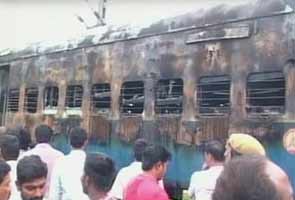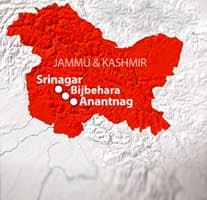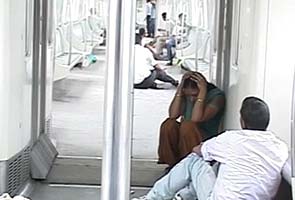New Delhi: Action has been taken against power officials in Uttar Pradesh for the massive blackout on Monday. Huge parts of North India spent Sunday night and much of Monday morning without any electricity. A fault near Agra, coupled with overdrawing of power by Uttar Pradesh, led to the blackout, which was the worst failure of the Northern Grid since 2001.
- Following the massive power outage, over a dozen IAS officers have been transferred in Uttar Pradesh, including Avinash Awasthi, the chairman of the state-run Uttar Pradesh state Power Corporation. However, Mr Awasthi's future has been kept in abeyance; he has not been given a fresh posting. The power grid collapsed because some states apparently drew more power than they were authorised to do to meet the rising demand during the summer, Mr Awasthi had earlier said.
- The crisis began at 2.30 am on Monday when the Northern power grid collapsed. Seven states including UP, Punjab, Haryana, and all of Delhi were plunged into darkness. 370 million people were affected - that's more than the population of the United States and Canada combined.
- By the afternoon, 80 per cent of the power had been restored in Delhi. Power Minister Sushil Kumar Shinde said the last time the grid collapsed, in 2001, it took 16 hours to restore services. This time, he said, most services were back up within six hours. By the evening, the Northern Grid was completely restored.
- The Northern grid was drawing power from the neighbouring Eastern and Western grids as well as getting hydroelectric power from the neighbouring mountain kingdom of Bhutan.
- Around 1.5 lakh passengers in 300 trains suffered delays as the power grid failure crippled operations across eight divisions of the northern railway. 200 goods trains were cancelled. Rajdhanis and Shatabdis ran four to five hours late. In Delhi, the metro could not run during the morning rush hour, causing huge traffic jams as desperate commuters hit the roads instead. By 9 am, metro officials said the services were back to normal.
- The Power Minister said a committee with three members will investigate what happened.
- The international airport in Delhi was not affected by the power outage. "All our essential services like flight arrival and departure, check-in, baggage handling, aerobridge services were shifted to our back-up system. So all these operations remained normal", an airport spokesperson said. He, however, conceded that non-essential services could be hit.
- The power deficit was worsened by a weak monsoon that lowered hydroelectric generation and kept temperatures higher, further increasing electricity usage as people seek to cool off.
- Shivpal Singh Yadav, the power minister in the state of Uttar Pradesh, home to 200 million people, said that while demand during peak hours hits 11,000 megawatts, the state can only provide 9,000 megawatts.
- Residents of Delhi are worried about their water supply being hit next. Delhi's six water treatment plants have been shut since power failed. All Delhi Jal Board water-pumping stations were affected. Power companies are giving priority to the Jal Board. Residents should be prepared for an erratic water supply till Tuesday morning.





